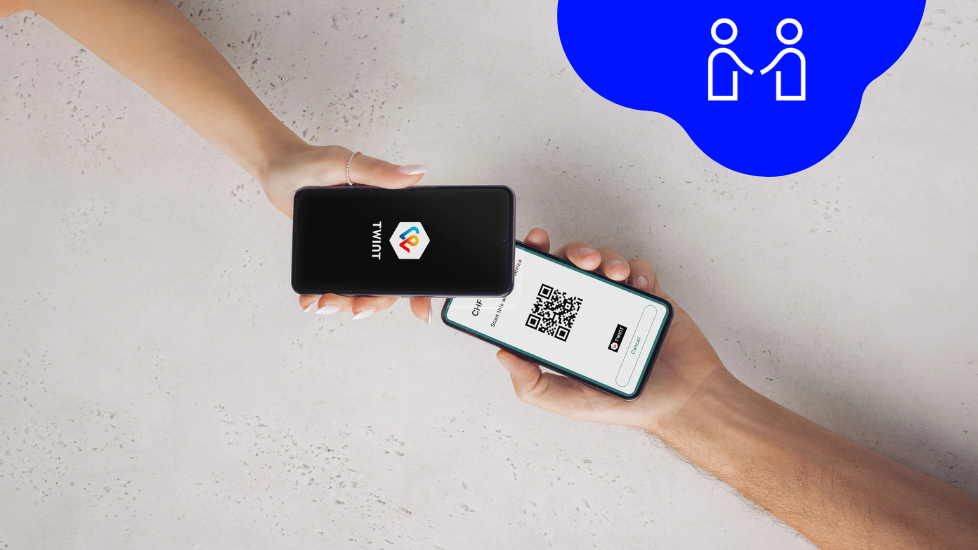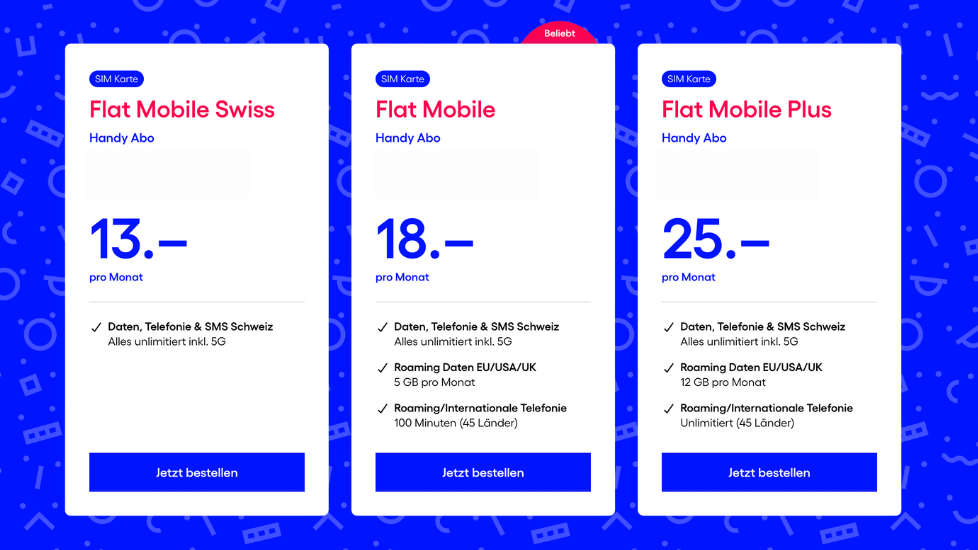What is an MVNO?
And Who Is Behind Digital Republic?
The Swiss mobile communications market is growing year by year with new providers, but the infrastructure is still provided by the three network operators: Swisscom, Sunrise, Salt. So are all the remaining providers simply replicas of the big three, just with different names? Is everything the same? For consumers, it is difficult to tell who is really independent or who actually belongs to whom. Because questions like these crop up again and again with reliable regularity. We want to counteract possible confusion and tell you which business models there are and how they differ from each other.
All the Same, Just Called Different?
A fair question, because the physical infrastructure is actually operated by the three providers Swisscom, Sunrise and Salt. These three network operators (MNOs, Mobile Network Operators) build and operate the antennas over which you make calls and surf the Internet. The other providers, such as Digital Republic, lease into the networks of the MNOs as so-called “Mobile Virtual Network Operators” (MVNO) and offer their rates via their infrastructure. However, there are some differences between the MVNOs.

Subsidiary MVNOs – The Equals Among the Others
Certain MVNOs are actually founded as subsidiaries by the network operators themselves in order to be able to offer discount prices, for example, without competing with their own products. In such a case, one can therefore actually speak of a “same” provider with a different name, since the revenues from the rates sold accrue to the same group of companies. Examples of this are Wingo (Swisscom), GoMo (Salt) or Yallo (Sunrise). Here, the end customers accept the general terms and conditions of the parent company (Swisscom, Salt or Sunrise) in each case.
Branded Resellers – The Diverse
Sometimes companies want to offer their customers connectivity at a preferential price without becoming providers themselves. Whether supermarket chain, electronics retailer or travel agency: Branded resellers sell SIM cards and rates to their customers under their own brand, but in addition to the network of a large provider, they often also use the shipping logistics, customer service or customer administration. Well-known representatives of this group include M-Budget Mobile, Coop Mobile and Aldi Mobile. End customers often accept the contract terms and conditions of the MNOs or a subsidiary MVNO. Thus, the customer data often does not belong to the branded reseller either.
MVNOs – The Independents
Companies like Digital Republic, which lease into one or more networks of the major providers but otherwise operate completely independently, play in this category. They develop their own rate models and software solutions and manage all customer data and billing themselves. In principle, pure MVNOs behave exactly like MNOs, with the exception of operating the physical infrastructure. This allows pure MVNOs to design their services and T&Cs completely independently. The contractual relationship is exclusively between the end customer and the MVNO.

What Do I Get Out of It as a User?
Many wonder why they should even consider an MVNO when the infrastructure is offered by one of the big three anyway. Aren’t users forced to make sacrifices with an MVNO? Not always, but the devil is in the details.
In principle, subsidiary MVNOs should not compete too much with the parent company, which is why the services of these MVNOs usually differ from the standard solutions of the parent company. The offerings are offered at particularly low prices, but often with limited support, or the scope of the offering (e.g., data volume, network standard) is reduced. However, anyone who pays attention here and finds exactly what he or she is looking for often gets the best value with these companies.
Branded resellers often offer secondary benefits such as loyalty points or discounts on the provider’s other products (e.g., in online stores). Branded resellers also usually aim for the lowest possible prices, but their offers and terms and conditions are often based on those of the network operator. Depending on the reseller, customer data is also managed by the network operator. Anyone who prefers an independent solution should take a close look here.
With MVNOs like Digital Republic, you benefit from a completely independent offer design and can compare the rates directly with those of an MNO. These MVNOs have to stand out from the competition with special services in order to survive, which is why you often benefit from special services here. At Digital Republic, this means:
- Unlimited 5G internet in a modular, tiered rate system that you can customize yourself at any time, also available as an eSIM and completely digital.
- Personal and competent support, also by phone.
- No minimum contract terms, cancellation periods, or other hidden costs.
- Self-management. As a customer, you manage your subscription independently, without having to call through long queues.
- As many SIMs as you want – there are no limits. You don’t have to sign a new contract every time you need to add a SIM to a new device (e.g., a tablet). In your customer portal, you have an overview of all the SIMs in your devices.

In addition to the direct benefit to customers from an expanded offering, however, MVNOs also play an important role on the market. The numerous virtual providers increase competitive pressure, which tends to lead to lower prices. In addition, with an MVNO such as Digital Republic, customers have the opportunity to be registered with an independent company that does not also operate the infrastructure.
So while there are MVNOs that belong to the network providers, this is by no means the case for all of them. It is worth comparing offers, taking a look at the terms and conditions, and clarifying your own needs. Even if the variety of providers seems intransparent and confusing at first glance, the chance of finding a particularly suitable solution always increases with all the offers.
Perhaps even with us!
Discover Our Other News Articles

Payment Terminals for Everyone!
The world is becoming increasingly cashless. Small and medium-sized businesses in particular are faced with the challenge of having to accept electronic payments when dealing directly with customers. The necessary equipment is often expensive, complicated, and comes with a monthly base fee. But there are alternatives!

The Development of Our Ideal Cell Phone Plans for Switzerland
The path to the current Trio Flat Mobile Swiss, Flat Mobile, and Flat Mobile Plus cell phone plans is also an example of how Digital Republic wants to function as a provider and where its priorities lie. We have quickly transformed ourselves from a pure data SIM provider to a cell phone plan provider. And we have completely rethought the development process.

The Affordable Mobile Provider With Award-Winning Service
When it comes to mobile providers in Switzerland, the wheat is often separated from the chaff when it comes to price. Either you pay little for your subscription and do without services like support or 5G, or you go to one of the big providers and pay more than you might like. At Digital Republic, you get both!
